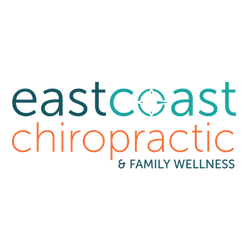.png)
Low back pain represents the number one reason for visiting a primary healthcare provider. Over 80 percent of the population will experience an episode of low back pain at some time during their life. With 8000 subscribers to MOM Talk’s Facebook group that means 6,400 moms in Fredericton have already or will experience back pain. This pain can make movements like picking up or placing your baby in their crib, putting your kids in their car seat, and picking toys up off the floor excruciating.
When you visit a healthcare provider for low back pain, you are often educated about medications, posture, core strengthening, proper lifting techniques, and other helpful tips to ease your pain. But how many of you have had an internal vaginal exam to assess whether your pelvic floor may be the source or a contributing factor to your back pain?
The link between low back pain and pelvic floor dysfunction, particularly in women, is becoming evident in the literature. A research article published earlier this year by Dufour et al. found that in women with lumbopelvic pain (pain arising from the low back and pelvis) a staggering 95% were found to have some form of pelvic floor dysfunction. Pelvic floor dysfunction can define a variety of findings in the pelvic floor muscles including excessive tension, weakness, poor endurance, shortened length and over activity. The approach to resolving the pelvic floor dysfunction and thus the back pain differs based on the findings. For example, kegels may be an appropriate form of treatment for pelvic floor weakness but can make pain and incontinence worse in women with over-activity in the pelvic floor.
What Does Peeing When I Sneeze Have to Do With Low Back Pain?
In the study mentioned above, urinary incontinence and/or pain with sex was experienced in 84% of the participants. In another study published in 2008, 78% of the women with low back pain reported urinary incontinence. Many women are unaware that their low back pain and urinary incontinence may be related and that rehabilitating the pelvic floor can be the solution for both.
At Pelvic Health & Physiotherapy I routinely screen for low back pain and pelvic floor dysfunction. If you experience frequent or unresolving low back or pelvic pain, you would benefit from having your pelvic floor assessed. Unfortunately, the pelvic floor is often overlooked by healthcare professionals, but can be the key factor in alleviating your pain. To learn more about pelvic floor physiotherapy or to book an initial assessment, send me an e-mail.
Lynn Sweeney, Physiotherapist
PHONE: 506-457-2113 | EMAIL | FACEBOOK
MEET LYNN

I knew that having kids would change my world, but I had no idea it would also change my career path.
In 2014 after giving birth to my son Scott, I experienced pelvic floor dysfunction. My Obstetrician recommended I seek treatment in a rather new and emerging field; pelvic floor physiotherapy. During my recovery, I sought specialized training in Toronto as this area of physiotherapy is not part of the academic practical curriculum in the Master of Physical Therapy programs.
In 2015 following completion of my training in female and male urinary incontinence, prolapse, and pelvic pain, I opened my own practice in Fredericton; Pelvic Health & Physiotherapy, in an Obstetrics & Gynaecology clinic. I divide my time between clinical work, teaching at UNB, and most importantly, spending quality time with my husband and two children.
I love my new world as a mom!
Lynn
Disclaimer– The content provided in the Mom Talk Blog’s “Advice From a Pro” series is for information purposes only and is neither intended to be relied upon nor to be a substitute for professional medical advice, diagnosis or treatment. Never disregard professional medical advice or delay in seeking it because of something you have read on this Website. The information is intended for residents of Canada.
We think you might also like…




















